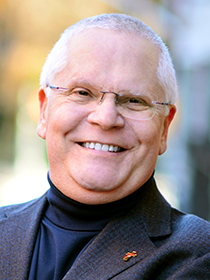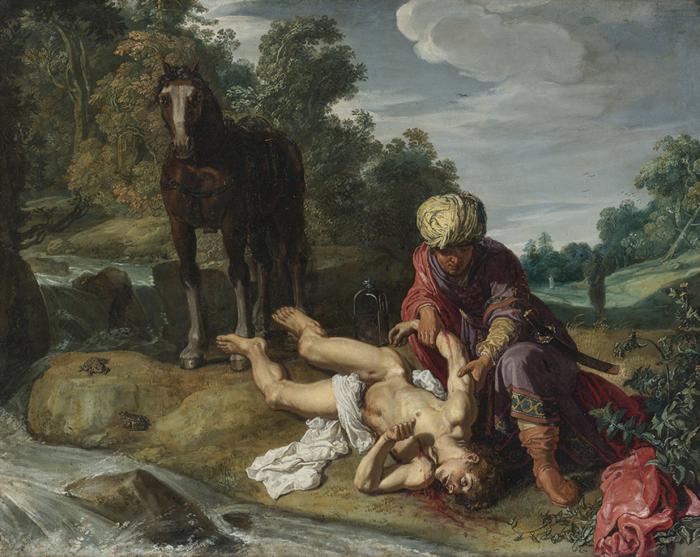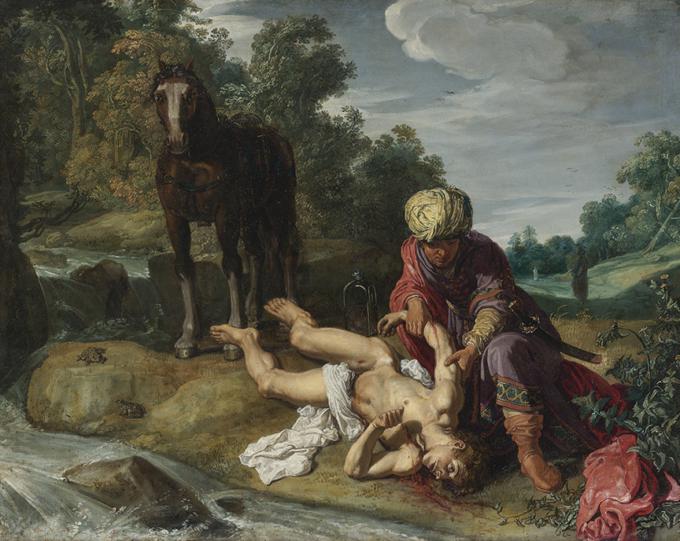The call to Server.Execute failed while loading the page.
Jesus dared to answer a question that no one had asked. We need to be brave enough and humble enough to ask ourselves questions that we might not want to answer. Questions such as: Who are those we consider extraterrestrial? Who are the “neighbors” that we ignore, avoid, or do everything possible to avoid?

Deacon Greg
Kandra
Ex 22:20-26
Ps 18:2-3, 3-4, 47, 51
1 Thess 1:5c-10
Mt 22:34-40
Anyone who has spent any time watching reruns of “Law and Order” knows the first rule of being a good witness in a courtroom: Never answer a question that hasn’t been asked of you. Stay in the loop. Don’t expand. Keep it short and simple.
Obviously, Jesus never watched “Law and Order.”
In this Sunday’s Gospel, when the Pharisees confront him with what they think is a confusing question: “Which commandment of the law is greatest?” — Jesus answers them directly. “You shall love the Lord your God with all your heart and with all your soul and with all your mind.”
But then he goes further. He is answering a question that was not asked. “The second is like this,” he explains. “You shall love your neighbor as yourself.”
What we glean from this encounter is commonly understood as “the two greatest commandments” and they constitute the very foundation of Judeo-Christian thought. “All the law and the prophets depend on these two commandments,” Jesus told the Pharisees.
But this is only the beginning. By connecting these two commandments together, Jesus clearly emphasizes the deeply important point that one does not exist without the other. He shows the Pharisees (and us) that if you think you can just worship God and ignore your neighbor, think again. We cannot neglect those around us in need. In fact, we shouldn’t just take care of them; we must love them.
Even more, we should love them as much as we love ourselves.
In Luke’s account of this episode, the Pharisees are so surprised by Jesus’ speech about loving our neighbor that it leads one of them to ask, “Who is my neighbor?”
The answer, of course, comes as one of Christ’s greatest parables, The Good Samaritan, serving to emphasize (if anyone hasn’t understood) that we are responsible for each other, even those who are different from us and do not believe what we think. believe. Their culture may be foreign to us. But that makes no difference. They are still – in a very human sense – our neighbors.
All of this contributes to giving immediacy to this Sunday’s first reading, taken from Exodus, which cries out to us in our time: “You must not molest or oppress a stranger…you will not harm any widow or orphan.”
This undoubtedly struck a chord thousands of years ago – and it should hit us just as hard today. At a time when there is so much debate about what to do about migrants arriving on our shores, these readings present themselves as challenging, defiant, even countercultural. They offer a radical way of thinking about those who are “aliens,” commanding us to treat them with love.
But these readings could also offer us a radical way of considering who is truly “foreign” to us. Being a “foreigner” is not limited to geography, nationality or the country indicated on your passport.
Extraterrestrials are among those we might consider “different.” This may be due to their skin color, language, heritage or way of dressing. This may be due to the way they worship or, perhaps, even the way they vote. Basically, any group of people considered “different from us” could be considered “foreign” or even, for some people, strange.
The Gospel says it clearly: these differences do not matter. Love them as yourself.
Jesus dared to answer a question that no one had asked. We need to be brave enough and humble enough to ask ourselves questions that we might not want to answer. Questions such as: Who are those we consider extraterrestrial? Who are the “neighbors” that we ignore, avoid, or do everything possible to avoid?
Are we capable of loving these people as much as we love ourselves? Finding the answers to these questions can bring us closer to living as Jesus lived and loving as he loved.
Which can only help us fulfill this first commandment – and lead us to love the Lord our God more completely.
– Deacon Greg Kandra is an award-winning author and journalist and creator of the blog “The Deacon’s Bench.”
comments
Comments policy
Recent articles in the Culture & Events section




